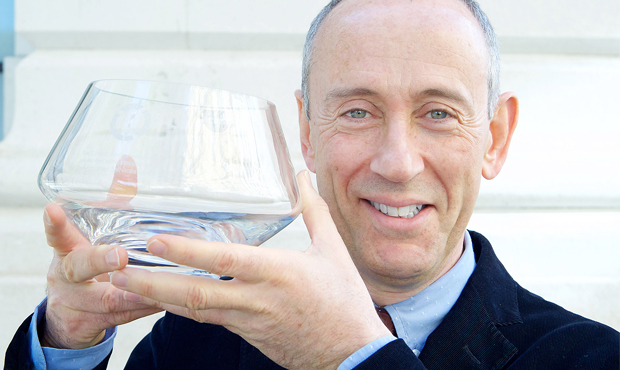Michael Coveney: Critics crown Hytner with award while Dench goes on desert island
Our chief critic reflects on yesterday’s award ceremony

© Elliott Franks
The Critics' Circle honoured Nicholas Hytner yesterday with an award for services to the arts in the spooky, hallowed halls of the National Liberal Club. It was a bit like a static Punchdrunk show with empty rooms and staircases surrounding a bizarre installation – a room full of critics with two Nicks, Hytner and Starr, the new NHS, chomping on prawn cocktails and lamb curry – and a crowd of mummified extras in the dining room upstairs.
Hytner made a graciously witty speech on what was, he reminded us, the Jewish Day of Atonement (he shouldn't have been there at all). He identified himself with critics in the tale of being asked by a young director about the golden days of the RSC in the late 1970s, early 1980; he felt duty bound to "pass it on, boys, pass it on" (as the teacher played by Richard Griffiths in The History Boys, advocates), and that was our job, too, as critics. We have common ground, he said, in separating wheat from chaff. He does it in auditions, we do it in reviews.
"But," he continued, "my judgements are far less confident than yours." And he segued into a wonderful account of how Richard Griffiths replaced an indisposed Michael Gambon as W H Auden in Alan Bennett's The Habit of Art — via a misfired flirtation with Simon Russell Beale ("a model of articulation" said the grumpily incoherent Gambon as they wheeled him out of the NT in an oxygen mask) — as an example of how compromise and pragmatism always rules.
SRB was unavailable but Griffiths, renowned as an unstoppable raconteur, blessedly was, and when he was delayed by a snarl-up on the motorway on the first day of rehearsals for the Bennett play, the author turned to Hytner and muttered, "For heaven's sake, let's get started as soon as he arrives, or we'll be here all morning listening to Traffic Jams I have known and been in…"
It was interesting, and revealing, that, whatever Hytner said, he constantly reverted back to the actors. I asked his sidekick, his former NT executive director, Nick Starr, also at the lunch, what their plans were beyond announcing the new theatre-build on the South Bank due to open in 2017. "We're talking to playwrights," he said, "and actors." Both Nicks know that the message means nothing without the postman.
Judi Dench did her profession proud on Desert Island Discs (BBC Radio 4) this week in referring to Shakespeare as "the man who pays the rent." It was a hilarious and revealing programme, still available on BBC iPlayer, in which she said she couldn't cook, hates watching herself, doesn't like being on her own (no solo shows imminent), and believes that the whole point of theatre is being part of a company. She then collapsed in a fit of unwarranted giggles with her interlocutor, Kirsty Young, and was heard, off-mic, to say "What a nightmare!" Brilliant.
Even more interesting was her choice of music, starting with Peter Maxwell Davies's beautiful "Farewell to Stromness" (because she's loved Scotland, especially, all her life), then classics from Frank Sinatra, Billie Holiday and Miles Davis (the last two she met and hung out with during her six-month Old Vic residency, led by John Neville, in Big Apple in 1960), and Dorothy Collins's definitive "Losing My Mind" from the original cast album of Sondheim's Follies.
The privilege of being a critic is that you can say (or try and say) something sensible about a performance. But Judi Dench reminded us of that special tricky moment of "face-to-face" encounter when we go backstage to greet a friend or seek an autograph. "How are you?" we might say, to which Judi reacts, well, how stupid can you be, you've just been watching me for three hours? Or, "You must be exhausted!" — well, yes, what do you expect, and now I'm even more exhausted having to talk to you…and so on.
Bernard Shaw had a reliable stand-by comment for dressing room greeting after a disappointing performance by a friend: "Marvellous isn't the word!" And others have fallen back on "You've done it again!" or "I never thought you had it in you…" Hytner wrapped up at the National Liberal Club by celebrating his colleagues, the actors, who matter more than anyone else in the theatre except, of course, the most important people of all, the audience.












